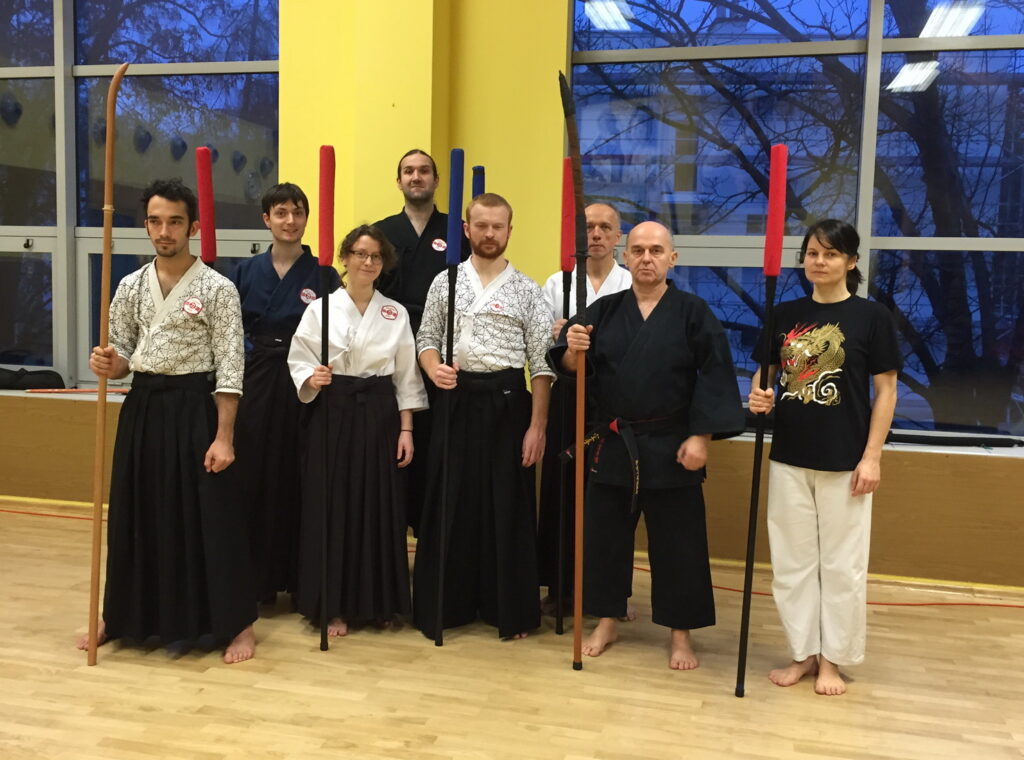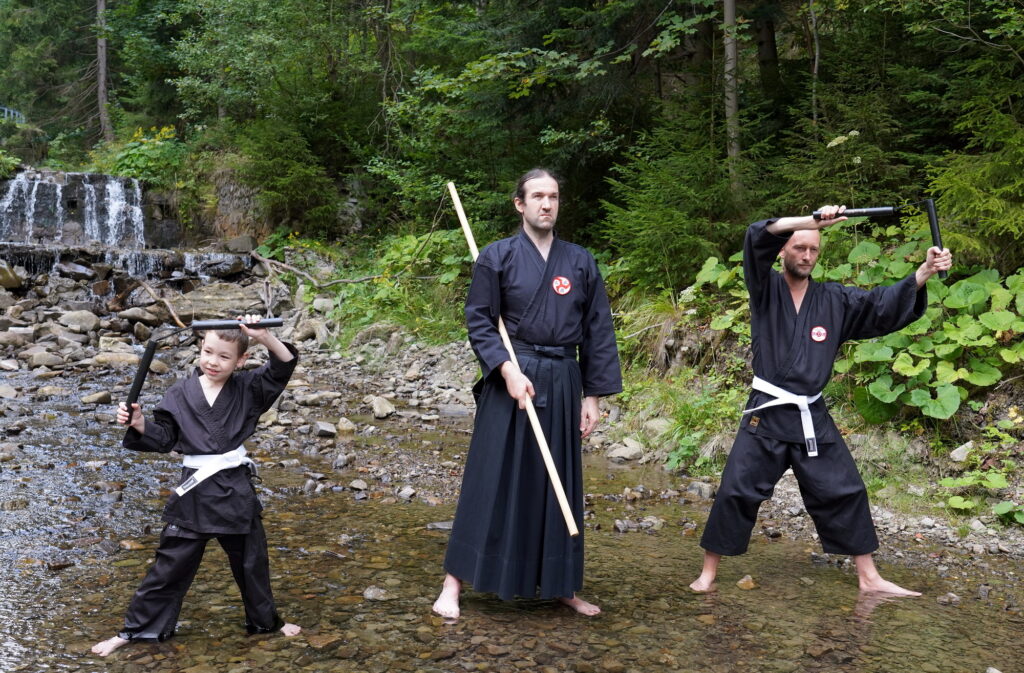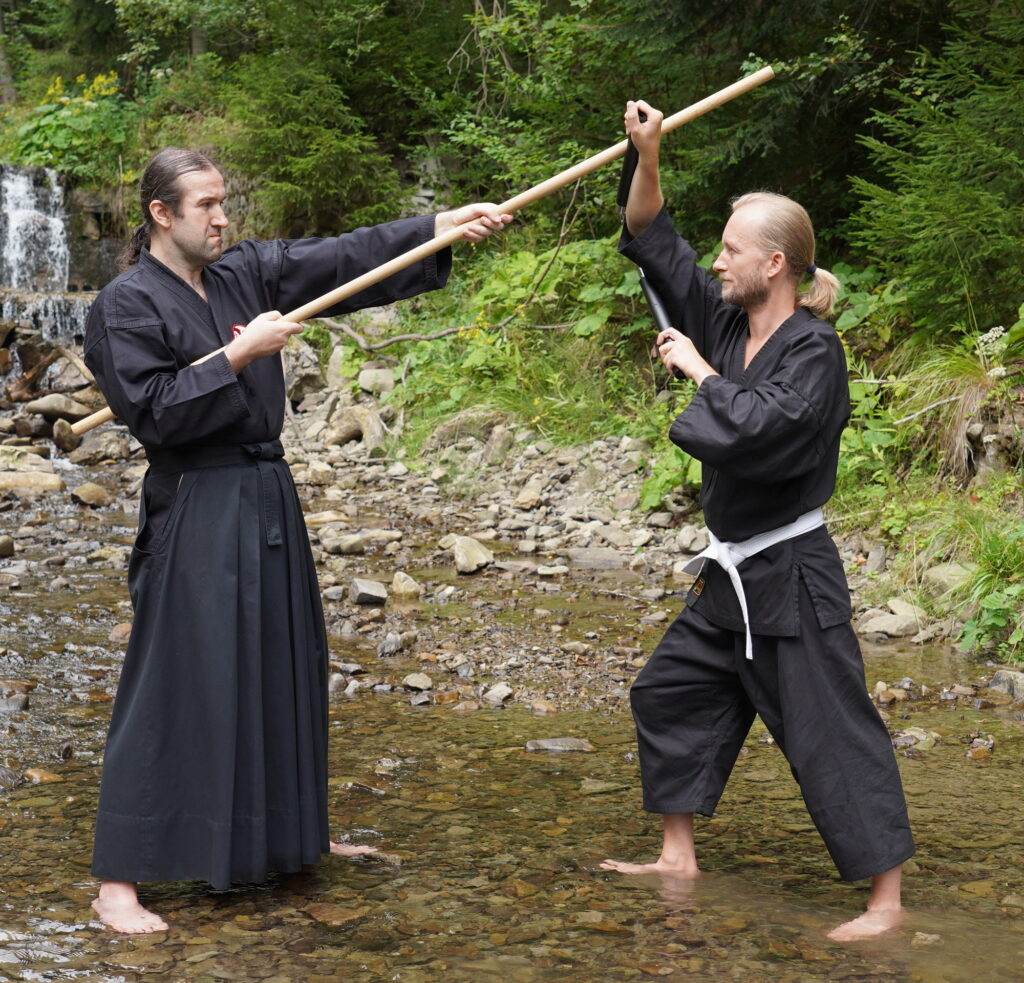

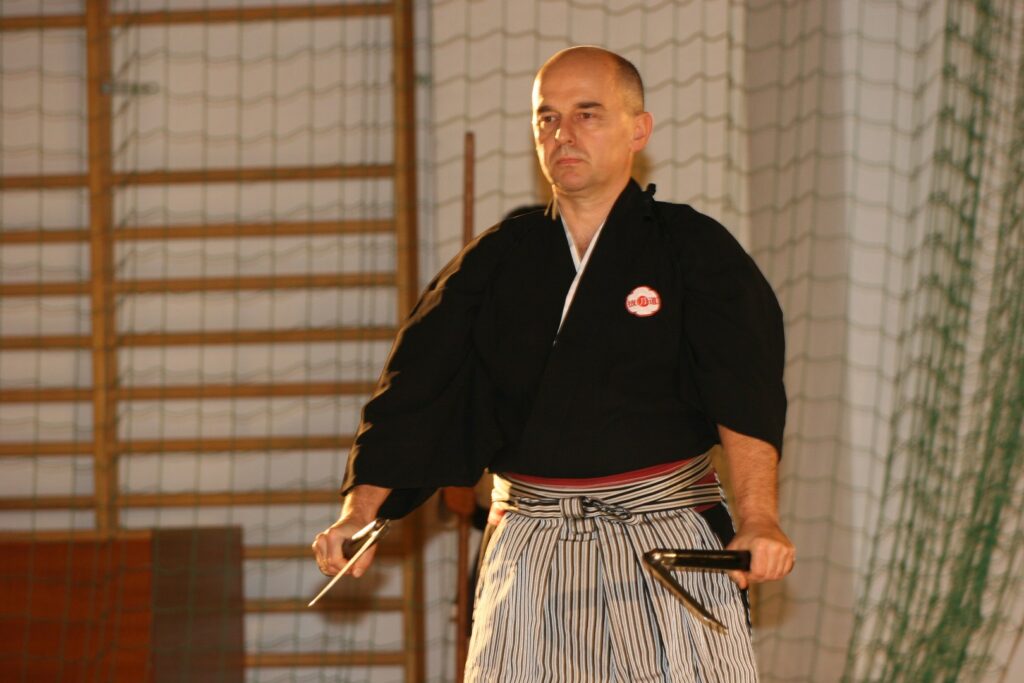
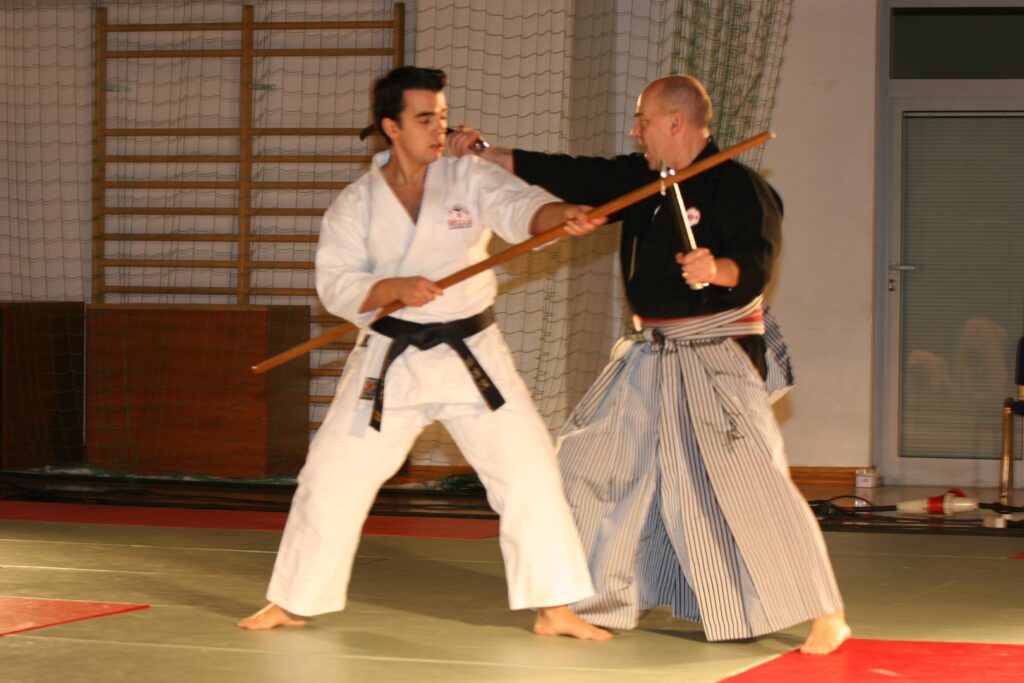
Kobudo – 古武道
Old martial arts, this term includes:
NIHON KOBUDO – the use of traditional weapons on the great Japanese islands, associated with the samurai tradition like bo and yari.
RYUKYU KOBUDO – the use of traditional weapons, converted from everyday tools in Okinawa and adjacent islands, associated with karate – a martial art of empty hands fighting. One of the basic weapons of kobudo is a long stick, called bo
The tradition of Nihon kobudo and Ryukyu kobudo is best intertwined and complemented in bo-jutsu. It was not without reason that the samurai guarding the entrance to the castle or settlement were armed with a long stick. It was a long-range tool, dangerous to use, a weapon that could incapacitate an attacker without having to wound or kill him.
The stick is made of hardwood (oak, beech, etc.), with a round or polygonal cross-section (six-, octagonal), often tapered at both ends, longer or equal to the height of a person. In our practice we use rokushaku bo, a stick with a length of six shaku, i.e. about 182 cm. In bo-jutsu, after mastering the basics: position, movement, basic methods of defending and attacking, we move on to kumibo or exercises in pairs (traditional clashes, sparring) and learning kata – forms of bo-jutsu, up to free fight with soft weapons in sport chanbara convention. Other primary kobudo weapons are: tonfa, kama, nunchaku, sai, tekko, sue and others.
